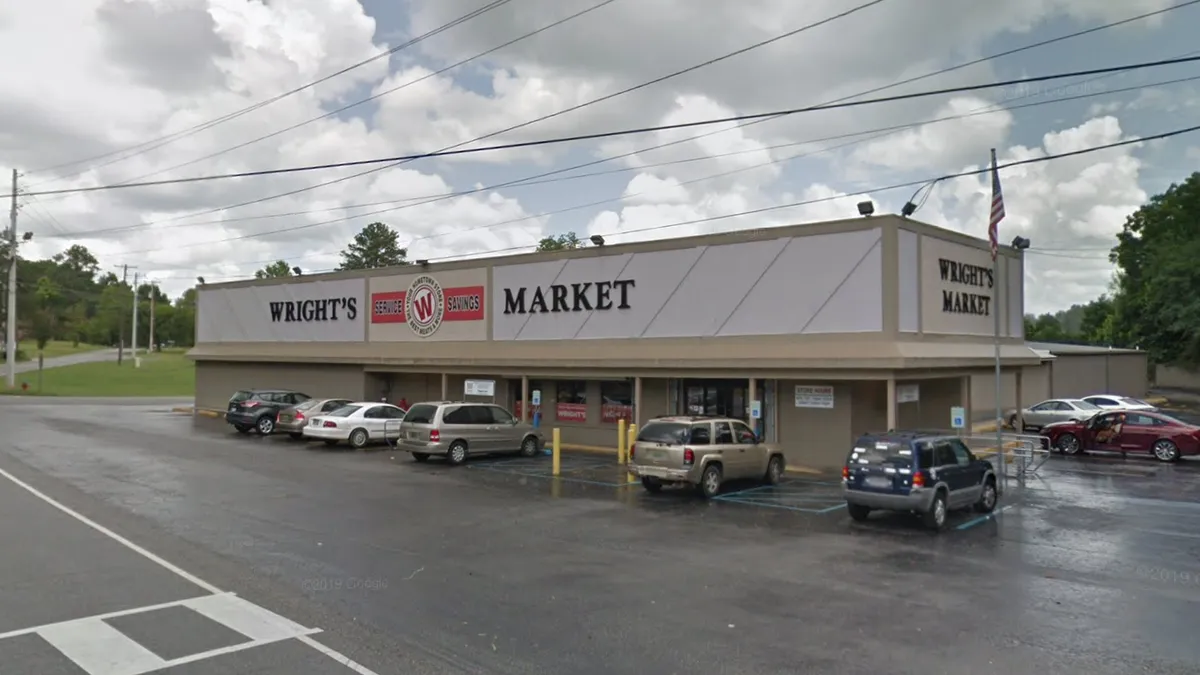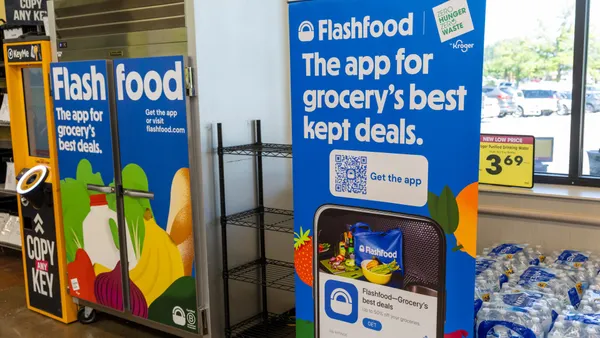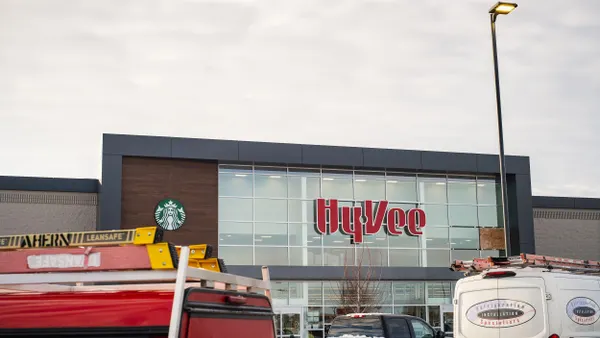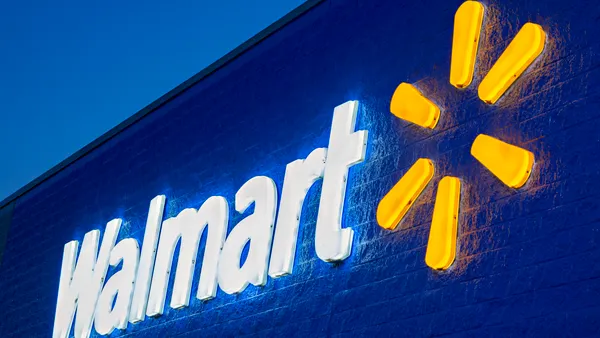Wright’s Market in Opelika, Alabama, plans to couple in-person support with online grocery shopping to fight food insecurity and boost e-commerce sales.
The independent grocer has teamed up with nearby Auburn University on an initiative they plan to launch later this year that will have students from the university help food-insecure seniors and parents with young children place online grocery orders. Wright's Market will then deliver the orders to a centralized pickup location.
Called Healthy Food Hotspots, the project aims to tackle the lack of access, both physical and digital, to groceries and provide support to SNAP recipients, who can place online orders through Wright’s Market, said Alicia Powers, managing director of the university’s Hunger Solutions Institute.
More than 1.8 million Alabama residents live in food deserts with limited access to grocery stores, and 10% of the state’s senior citizen population is food insecure, Powers said in a video about the project.
Boosting SNAP online business
For Wright’s Market, the Healthy Food Hotspots project is a way to strengthen community ties and increase online SNAP orders.
Last March, Wright’s Market became the first independent grocer to launch SNAP online purchasing through the federal government’s then-limited pilot. Because the rollout happened right before coronavirus restrictions swept the U.S., the promotional opportunities the grocery store had planned got delayed as it shifted its priorities to the e-commerce surge and operational challenges prompted by the pandemic, said Jimmy Wright, president and owner of the independent grocer.
“A year later, we’re doing some business with it. Nothing like I think we can do,” Wright said.
Currently, online SNAP orders, along with other e-commerce orders, are usually larger than in-store purchases, but occur less frequently, Wright said.
While shoppers could be stocking up more when they buy online, the reduction in the amount of orders could also be due to a lack of digital access in some rural areas.
“Broadband connectivity is a great challenge here now, as well as having devices that can allow for online shopping and redemption,” Powers said.
Healthy Food Hotspots aims to solve that by having students bring the internet and devices to shoppers. To pay for the iPads, hotspots and internet connectivity, Auburn University included the project in its annual day of giving on Feb. 24, resulting in 186 donors raising $11,730 — surpassing the original goal of $8,500.
Fighting food deserts
Wright, who has long focused on the intersection of food, housing and health as a commissioner on the Opelika Housing Authority and board member of the East Alabama Medical Center Foundation, said that solving food deserts requires increasing accessibility and affordability.
For several years, Wright’s Market has run a free shuttle that transports shoppers within a certain distance to and from the store to address transportation challenges. As word spread, Wright said communities farther and farther away have expressed interest in the service.
“Running my shuttle and up and down the road for one person here, one person there was not a long-term solution," Wright said.
With the shuttle limited to a radius around the store, the Healthy Food Hotspots can reach customers who are 20 miles away from a grocery store but 1 mile or so away from a community gathering place like a church or senior center, Wright said.
“Practically everybody that we do online SNAP for is a delivery customer,” Wright said. “It validates the fact that, for a lot of these people, transportation is the issue.”
With the Healthy Food Hotspots, Wright’s Market will also likely reach a wider audience that can take advantage of its Double Up Food Bucks program, which offers a 50% discount on fruits and vegetables purchased with SNAP benefits.
Focus on face-to-face
In-person support can help shoppers overcome apprehension about using their credit card or personal information online and aid older shoppers with difficulties placing online orders, Wright said.
When the grocer started offering Double Up Food Bucks a few years ago, Wright said that the store’s biggest volume days came after community events, noting that face-to-face is “really important in an e-commerce world.”
Because in-person interactions are important to the project, Wright and Powers say the rollout of the Healthy Food Hotspots will depend on risk factors with the coronavirus pandemic. Wright said he will wait until health officials say large gatherings are safe. He and Powers are hopeful that the project will be able to launch this fall.
As the Healthy Food Hotspots gets closer to its anticipated launch, Powers said Auburn University is already eyeing expansion of the program with other grocers in rural Alabama as SNAP online purchasing becomes more widely available.
“It's definitely something that we are hoping to scale," she said.












